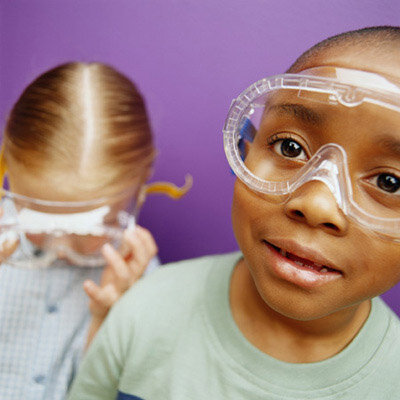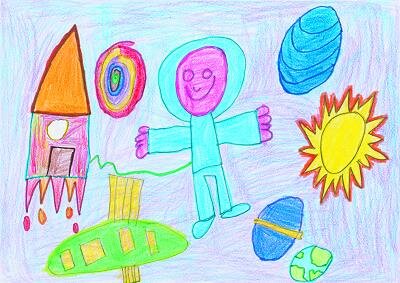'Space Team' prepares for the new school year
As the summer comes to an end, the children are starting to go back to school... and so is the 'Space Team'. The new online educational material for primary schools has just passed a month-long review by 40 teachers and education professionals, as well as European Space Agency scientists and engineers: it is now being prepared to go online for the new school year.
Workshop
On 3 and 4 July, a workshop for primary school teachers, education professionals and ESA experts, was held at ESTEC, ESA's research and technology centre in the Netherlands. Reviewing the 'Space Team' educational material, they reported back that they found the activities diverse and very interesting. Highly valuable advice was given on the presentation of activities and how to make them attractive to children (and their teachers). Over the summer, more ESA experts have read, reviewed and validated the scientific and technical content of 'Space Team'.
Lessons and activities

Using the 'Space Team' website, primary school teachers will have access to 18 lessons and over 80 activities for use in the classroom. The website's human spaceflight theme will address curriculum topics including Art, Science, Geography, Languages, and Technology.
For example, the children can:
- Imagine themselves as Leonardo Da Vinci in the International Space Station (ISS), inventing gadgets to make it easier to live in space;
- Colour, cut, paste and launch a paper rocket using a photo roll container and a soluble vitamin tablet;
- Make their own space puppet theatre with a few pieces of wood, some paint and a bit of imagination;
- Experience how it feels to be an astronaut during a spacewalk, using roller blades;
- Role-play Mission Control activities during a mission to the ISS;
- Pass messages in Morse code;
- And many more exciting activities…
The lessons are organised around six major themes: being an astronaut, travelling to space, being weightless, the ISS, communicating with space and the view from space.
'Space Team' may appear to be a self-standing project, but it is much more than that. It is a framework that will keep on changing, growing and diversifying - following the latest space news and incorporating teacher feedback. That's the advantage of a website.
Space missions

Eighteen months ago, as part of the Cervantes Mission of Spanish ESA astronaut Pedro Duque to the ISS, ESA launched its first educational programme for primary schools called 'Habla ISS'. All 14 000 Spanish primary schools received a letter from Pedro Duque inviting them to play with lessons and activities from the 'Habla ISS' website. Children could also enter a drawing and story-writing contest - the winners got to talk with Pedro when he was on board the ISS.
In an evaluation of the 'Habla ISS' project the Spanish teachers awarded an average of 9.27 marks out of 10! As a result of the positive feedback, this educational programme was repeated, under the name of 'Zeg Het ISS', during the DELTA Mission of Dutch ESA astronaut Andre Kuipers in April 2004.
Experience and research

The experience gained by ESA during these two educational programmes has enabled us to further develop the educational content: resulting in 'Space Team'.
Teaching young children requires a comprehensive pedagogical approach. 'Space Team' is also based on five recommendations from the latest educational research:
- Use space as a tool to teach across all disciplines
- Present interdisciplinary activities
- Stimulate curiosity and creativity
- Propose project-oriented and hands-on activities
- Develop collaborative skills with teamwork
Launch
'Space Team' will be a highly colourful and interactive website which can be accessed from ESA's Education portal. The launch of the English language website is planned for December 2004. The other ESA languages will follow soon afterwards.




